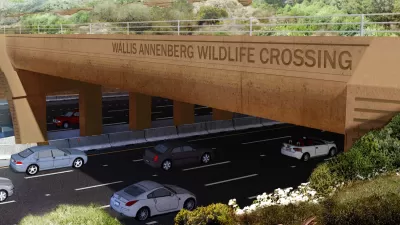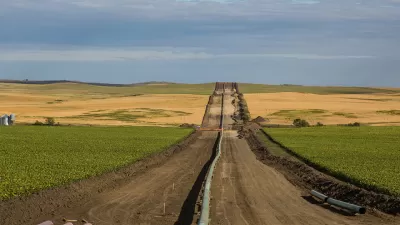With President Obama adopting historic fuel efficiency regulations for motor vehicles, it may be helpful to hear from opponents of the regulatory approach, not only from the President’s political opponents but also the venerable Brookings Institution
Being an election year, Republicans were quick to oppose the "'historic' regulations that nearly double the "Corporate Average Fuel Economy, or CAFE, program mandate to 54.5 miles per gallon for the 2025 model year", but why has a Brookings Institution economics expert joined the critics?
"Gov. Romney opposes the extreme standards that President Obama has imposed, which will limit the choices available to American families", reported ThinkProgress on Aug. 28.
"Rep. Darrell Issa (R-Calif.), House Oversight and Government Reform Committee chairman, recently charged the plan is a gift to "environmental extremists", reported Politico, while environmentalists surely did celebrate the new regulations.
"Today, President Obama has taken the most significant action by any President in history to move our country off oil and slash dangerous, climate disrupting pollution that threatens our children's future", announced Michael Brune, executive director of the Sierra Club in their Aug. 28 press release.
Ted Gayer, co-director of the Economic Studies program at the Brookings Institution and W. Kip Viscusi, Vanderbilt University Distinguished Professor of Law, Economics, and Management not only oppose the regulatory approach toward fuel efficiency standards for motor vehicles but also "to clothes dryers, air conditioners, and light bulbs".
Gayer and Viscusi assert that "as the regulatory agencies' own estimates confirm, the environmental benefits of these regulations are negligible, and are often dwarfed by the societal costs they impose."
"In our recently released Mercatus Center study, we examined a sample of energy efficiency regulations proposed or enacted by the Department of Energy, the Department of Transportation, and the Environmental Protection Agency to assess the validity of their benefit claims."
So if not government mandates, what does Gayer suggest - if anything, to promote energy efficiency?
"[A] lot of these regulations aren't well-equipped at getting a problem; whereas, if you put a price, like a carbon tax as you say, which is my preferred policy, that actually gets at the problem", he explained to Monica Trauzzi on E&E TV on July 17, 2012.
Monica Trauzzi: "But we've gone down this road before and we figured out that these approaches are not necessarily politically feasible right now. So, aren't these efficiency measures the next best thing?"
Ted Gayer: "Well, so I think you're right. I think politically what I'm advocating for, as we've seen, is very difficult."
Thanks to Environment & Energy Publishing (E&E)
FULL STORY: Energy Efficiency Regulations Set Dangerous Precedent

Pennsylvania Mall Conversion Bill Passes House
If passed, the bill would promote the adaptive reuse of defunct commercial buildings.

World's Largest Wildlife Overpass In the Works in Los Angeles County
Caltrans will soon close half of the 101 Freeway in order to continue construction of the Wallis Annenberg Wildlife Crossing near Agoura Hills in Los Angeles County.

U.S. Supreme Court: California's Impact Fees May Violate Takings Clause
A California property owner took El Dorado County to state court after paying a traffic impact fee he felt was exorbitant. He lost in trial court, appellate court, and the California Supreme Court denied review. Then the U.S. Supreme Court acted.

California Grid Runs on 100% Renewable Energy for Over 9 Hours
The state’s energy grid was entirely powered by clean energy for some portion of the day on 37 out of the last 45 days.

New Forecasting Tool Aims to Reduce Heat-Related Deaths
Two federal agencies launched a new, easy-to-use, color-coded heat warning system that combines meteorological and medical risk factors.

AI Traffic Management Comes to Dallas-Fort Worth
Several Texas cities are using an AI-powered platform called NoTraffic to help manage traffic signals to increase safety and improve traffic flow.
City of Costa Mesa
Licking County
Barrett Planning Group LLC
HUD's Office of Policy Development and Research
Mpact Transit + Community
HUD's Office of Policy Development and Research
Tufts University, Department of Urban and Environmental Policy & Planning
City of Universal City TX
ULI Northwest Arkansas
Urban Design for Planners 1: Software Tools
This six-course series explores essential urban design concepts using open source software and equips planners with the tools they need to participate fully in the urban design process.
Planning for Universal Design
Learn the tools for implementing Universal Design in planning regulations.


























